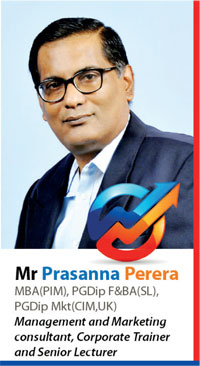Managing the Workload and Responsibilities: A Fresh Perspective
View(s):Introduction
In a culture that values multitasking, professionals often mistake efficiency for doing more. However, a more effective approach is to focus on fewer, essential tasks. Prioritising these allows for strategic thinking, improving focus and delivering significant impact. True efficiency is not about completing tasks; it is about ensuring the ones you do align with your goals.
The Power of “No” – Learning to say “no” is vital for effective workload management. Every new commitment takes away time and energy from existing responsibilities. Rather than automatically agreeing to requests, evaluate if the task aligns with your objectives. Saying “no” strategically creates space for opportunities that support your goals, enhancing focus and productivity.
Cultivate Your “Focus Zone” – Identify your peak productivity hours, or “focus zone,” when your mind is sharpest. Schedule your critical tasks during this time to align your workload with your natural energy. This not only boosts efficiency but also ensures a more balanced, fulfilling work experience.
Reverse Scheduling – Reverse scheduling helps streamline your tasks by planning backward from a project’s deadline. Break your project into essential milestones, assess how long each phase takes, and avoid last-minute scrambles. This approach fosters more thoughtful, organized time management.
Task-Chunking – Large projects can be overwhelming. Task-chunking involves breaking big tasks into smaller, manageable portions, making them more approachable. This creates a roadmap that reduces stress and provides quick wins, maintaining motivation and ensuring steady progress.
Embrace Imperfection – Striving for perfection can delay progress. Instead, focus on completing tasks “well enough” to meet high standards without getting bogged down by details. This mindset encourages creativity and innovation, as it allows for exploration without the fear of mistakes.
Networking Beyond Work – Networking should extend beyond formal work events. Forge connections across diverse fields and industries. Engaging with various perspectives exposes you to fresh ideas and solutions that may not be apparent within your own field. This cross-pollination of ideas encourages creative problem-solving and enriches your professional experience.
Nonlinear Workflows – Traditional linear workflows can sometimes stifle creativity. Embrace nonlinear workflows by shifting focus to different tasks when encountering roadblocks. This flexibility can reignite motivation and provide fresh perspectives, ultimately leading to breakthroughs.

Ditch The Dreaded To-Do List – Rather than relying on a traditional to-do list, adopt a “done list” that tracks your daily achievements. This shifts the focus from what’s undone to what you have accomplished, fostering a sense of satisfaction and motivation. It encourages a positive approach, helping you approach each day with renewed energy.
The Art Of Task Triage – Implement a task prioritisation method by classifying tasks based on their urgency and significance. This method helps you focus on high-impact tasks and avoid wasting time on less critical ones. Prioritizing tasks helps focus your efforts on those that generate significant outcomes.
Practice ‘Reactive Delegation’ – Instead of proactively delegating tasks, consider reactive delegation when your workload becomes overwhelming. Assess which tasks require your attention and which can be offloaded. This strategic delegation ensures that key responsibilities are handled effectively while maintaining control over essential work.
Avoid The ‘Progress Trap’ – The “progress trap” occurs when you focus on small, immediate tasks that do not contribute to long-term goals. Regularly evaluate whether tasks align with your larger objectives. This ensures that every achievement has meaningful value, keeping your efforts aligned with professional growth.
Recognise Your Limits – Acknowledging your limits is crucial for sustainable workload management. Regularly assess your capacity and be honest about what you can handle. Self-awareness prevents over-commitment, reduces stress, and fosters a healthier work-life balance.
Preparing for Future Challenges – Anticipating future challenges allows you to prepare contingency plans. By assessing upcoming projects, you can identify potential obstacles and be better equipped to handle difficulties without compromising productivity. This proactive approach builds resilience and enhances efficiency.
Conclusion
Effective workload management is not about doing more but strategically focusing on high-impact tasks. By aligning your work with natural energy rhythms, embracing imperfection, and prioritising what truly matters, you can manage your responsibilities more efficiently. Success lies not in doing everything but in excelling at what counts most. True efficiency is about purposeful prioritisation, not time management.
HitAd.lk is the best and biggest mobile phone market in Sri Lanka, and we guarantee you will find what you need here from our extensive listing of mobile phones for sale in Sri Lanka. Whether it’s a budget-priced smartphone for communication, or higher end features with advanced connectivity, there are many different options from which to choose from on our site!


